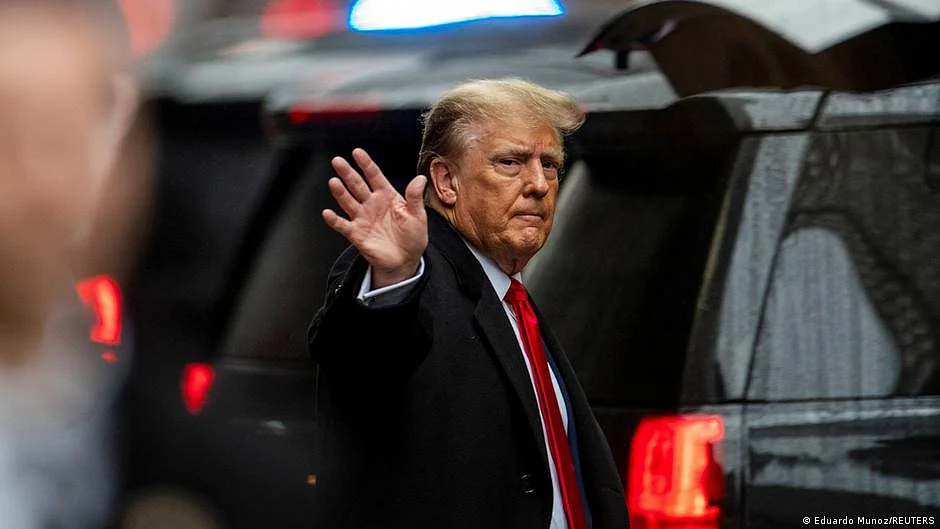Business
Explained: What Trump’s proposed tariffs on drug imports could mean for India
Until now, pharmaceuticals and semiconductors had been exempt

In a move that could have far-reaching consequences for India’s pharmaceutical industry, US President Donald Trump has announced plans to introduce a “major” tariff on pharmaceutical imports soon.
Speaking at an event hosted by the National Republican Congressional Committee, Trump said the measure is aimed at encouraging drug manufacturers to shift operations back to American soil and reduce dependence on foreign suppliers.
While he did not specify the timeline or the scale of the proposed duties, his message was clear: the US wants to see more domestic production of medicines. Until now, pharmaceuticals and semiconductors had been exempt from Washington’s broader reciprocal tariff policy. This shift signals a potential tightening of trade that could directly hit Indian pharma exporters.
Why India Should Be Concerned
The US is India’s single-largest market for pharmaceutical exports. According to the Pharmaceuticals Export Promotion Council of India (Pharmexcil), India exported drugs and pharmaceutical products worth $27.9 billion in FY24, of which nearly 31 per cent—or $8.7 billion—was to the United States alone.
India is a critical supplier of affordable generic and biosimilar medicines to the US, providing over 45 per cent of all generics and around 15 per cent of biosimilars used there. Leading Indian pharmaceutical firms such as Sun Pharma, Dr Reddy’s, Aurobindo Pharma, Zydus Lifesciences, and Gland Pharma rely heavily on the US market, deriving between 30 to 50 per cent of their total revenues from it.
Impact on India and the US
If the proposed tariffs are implemented, the fallout could be felt on both sides of the trade equation. Indian companies, which already operate on thin margins in the US generics space, may struggle to absorb the additional cost burden.
This could force them to either increase prices for American consumers and insurers or re-evaluate the viability of their US operations altogether.
On the American side, analysts have warned that tariffs on low-cost drug imports could backfire by leading to inflation, higher healthcare costs, and potential shortages of essential medicines.
“In case the US starts imposing tariffs on the pharma sector, it will impact both countries,” analysts from HDFC Securities told Mint. The US relies heavily on India for its supply of affordable medicines, and a sudden disruption could prove costly for both healthcare providers and patients.
Published: undefined
The Bigger Picture
Trump’s statement that “we’re going to be doing something very big on drug imports — a major tariff is coming” underscores a growing emphasis on economic nationalism in the US political landscape. The proposed measure aligns with his broader policy of incentivising manufacturing within America to reduce foreign dependence, especially on countries like China.
However, by targeting pharmaceutical imports—a sector that was previously spared—Trump’s approach could introduce new volatility into US-India trade ties, which have generally remained strong despite occasional disputes.
The Bigger Picture
Trump’s statement that “we’re going to be doing something very big on drug imports — a major tariff is coming” underscores a growing emphasis on economic nationalism in the US political landscape. The proposed measure aligns with his broader policy of incentivising manufacturing within America to reduce foreign dependence, especially on countries like China.
However, by targeting pharmaceutical imports—a sector that was previously spared—Trump’s approach could introduce new volatility into US-India trade ties, which have generally remained strong despite occasional disputes.
What Next?
For India, the development warrants close monitoring. If the US moves forward with imposing duties on pharmaceuticals, Indian pharmaceutical firms may need to consider strategies such as local manufacturing partnerships in the US, diversification of export markets, or lobbying for carve-outs in future trade negotiations.
In the absence of detailed timelines or policy documents, the proposal remains speculative for now. But the signal from Trump is loud and clear: foreign suppliers, including India, may soon have to navigate a much tougher American trade environment.
Published: undefined
Follow us on: Facebook, Twitter, Google News, Instagram
Join our official telegram channel (@nationalherald) and stay updated with the latest headlines
Published: undefined